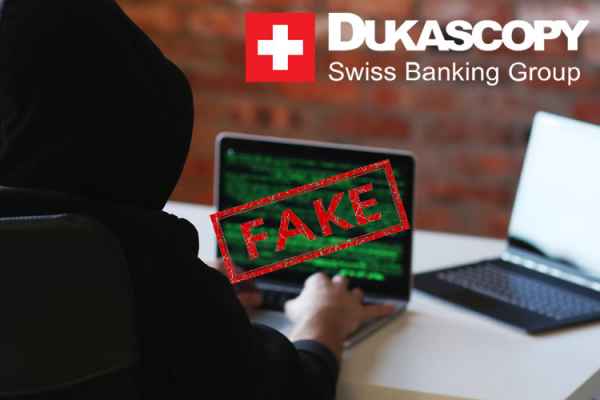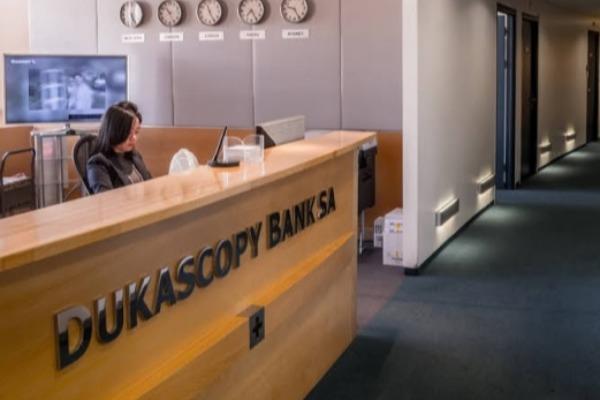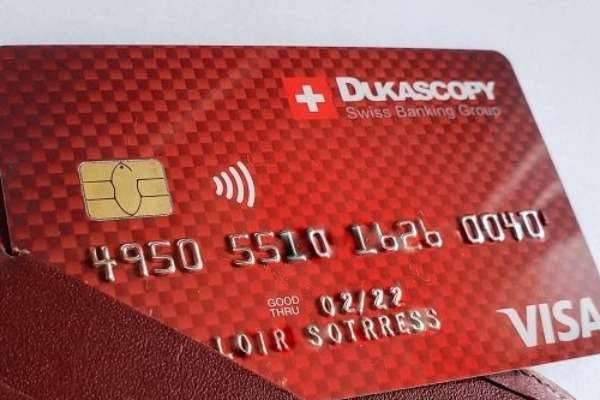Dukascopy warns clients not to be fooled into giving up their identities to potentially deceptive dummy sites.
Switzerland's broker and forex bank based, Dukascopy, confirmed that its clone entity https://dukascopygroup.com had removed the website and the link leading to the member's login page. However, it was unclear whether the site was removed due to the warning or leading to it.
Dukascopy has also confirmed that it has no relation with the fake domain and advises everyone to avoid it altogether. When checking the cache version on the Dukascopy clone site, the fake website appears to be focused on offering cryptocurrency products to Thai speakers.
"Please note that this website is not controlled by and does not belong to Dukascopy Bank, Dukascopy Europe, Dukascopy Japan, or any other entity of the Dukascopy Group. Do not trust any information that can be found on the website. Do not provide any personal data on this website. We are taking action against this fraudulent web page," said Dukascopy.
The Swiss broker is one of several FX firms whose brand has been taken over by scammers numerous times, although they have never taken a cold, cheery investment approach.
The main focus of clone company scams usually includes Dukascopy's cryptocurrency business, as the pandemic has made people more vulnerable due to concerns about personal finances.
The company has taken steps to strengthen its cryptocurrency offering, including allowing clients to deposit and withdraw funds in digital coins and enabling free internal crypto transfers between mobile banking users.

In the UK alone, as much as £78 million has been stolen in 'clone company' investment scams, and the number of reports of this type of fraud is increasing. Fraudsters always change how they convince people to part with their money or sensitive information.
According to global Regulators, scammers are becoming more sophisticated nowadays by presenting professional websites and social media channels so that victims can be fooled easily. The most frequently reported thefts to involve theft in the form of investments such as stocks and bonds, foreign exchange, and cryptocurrencies.
Scammers also use the branding of legitimate, regulated companies and even cloned websites to solicit people to make investments. Once victims register their interest, they are contacted by scammers. They often obtain real employee names from investment firms and create company email addresses that appear legitimate but with very subtle changes. Thus, even the most sophisticated investors can be at risk of falling victim to counterfeit scams.

 Dedicated FREE FOREX VPS
Dedicated FREE FOREX VPS Free FOREX Virtual Private Server
Free FOREX Virtual Private Server MT4 Demo Contest, Get $500
MT4 Demo Contest, Get $500 Sign Up for an Account, Claim 60% Deposit Bonus
Sign Up for an Account, Claim 60% Deposit Bonus Free MT4/MT5 VPS 2024
Free MT4/MT5 VPS 2024 Send E-mail and Get Free Merchandise
Send E-mail and Get Free Merchandise $1K Refer a Friend Bonus for Pepperstone Pro clients
$1K Refer a Friend Bonus for Pepperstone Pro clients Maximize Your Earnings with 100% Deposit bonus
Maximize Your Earnings with 100% Deposit bonus Trade to Win, $5,000 Monthly Demo Contest
Trade to Win, $5,000 Monthly Demo Contest Claim 30% + 15% Deposit Bonus from LiteFinance
Claim 30% + 15% Deposit Bonus from LiteFinance







